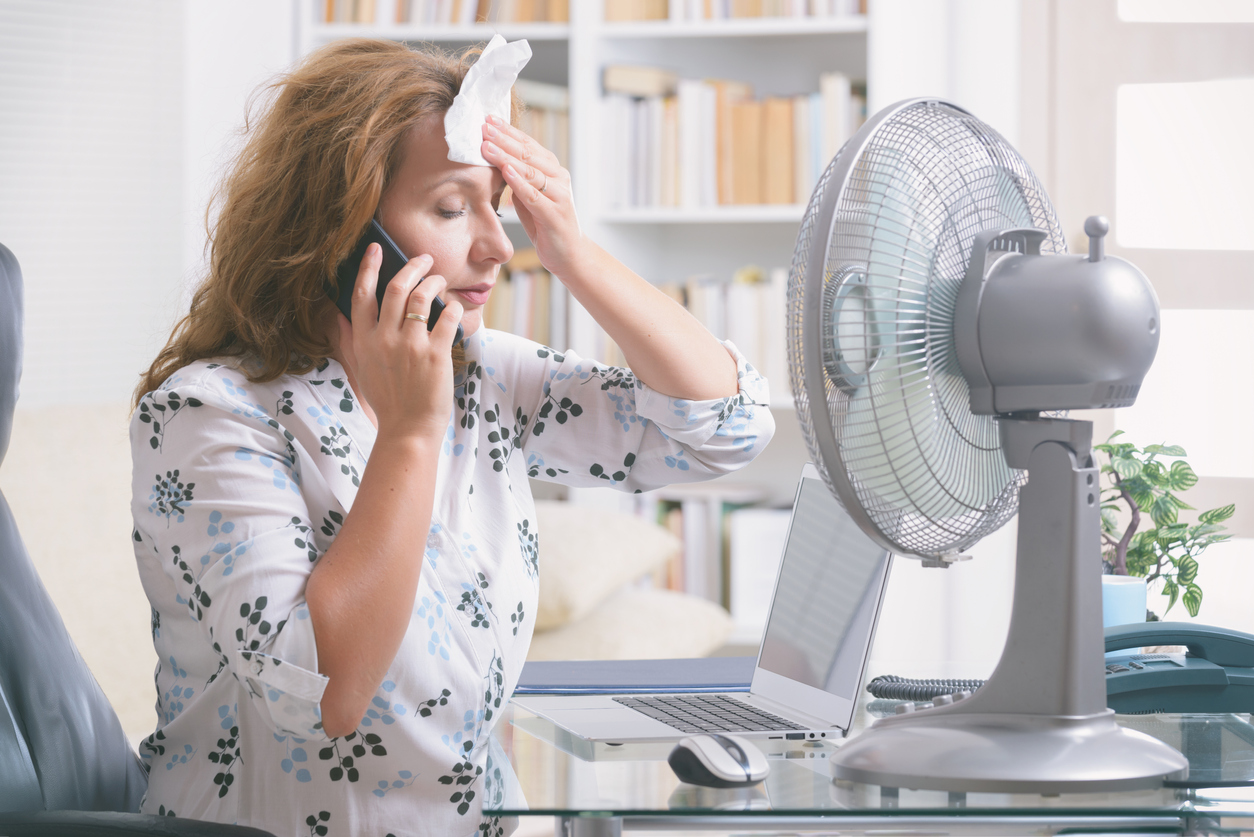It’s pretty likely that you are aware of menopause. While it’s a topic that isn’t broadly talked about, it is relatively well-known that all women will experience menopause at some point in their lives. Menopause can come with a range of symptoms that could be mild, like a bit more acne. Sometimes, those symptoms are downright unpleasant or uncomfortable (hello, hot flashes in the middle of a crowded room!).
Whether you’re experiencing menopause now or simply preparing for it later on, you may have heard about many herbs or supplements designed to treat some common menopause symptoms. One of those supplements includes turmeric. You may be wondering whether it really will help relieve those sudden hot flashes that are often associated with menopause. Read on to explore turmeric, its main active ingredient, curcumin, and its potential benefits in relation to menopause.

A Look at Menopause
As you know, menopause is a stage of a woman’s life that signals an end to her ability to reproduce. Mayo Clinic notes that a woman is generally diagnosed once she has not had a menstrual cycle for one full year.
As with menstrual cycles, menopause can happen for different women at different ages. Some women may enter menopause in their 40s, while some may not experience menopause until their 50s. In the United States, the average age when women go through menopause is 51.
Hormones and Menopause
Menopause and the associated irregularity or halting of menstrual cycles are closely linked to estrogen and progesterone. These two hormones are key players in menopause, as their levels will fluctuate when a woman nears menopause.
In fact, these hormone levels could begin to decrease as women near age 40. This change in hormone levels is typically a factor in the various symptoms that come with menopause.
Signs of Menopause
As you approach menopause, there are some telltale signs. Many women experience mood swings or perhaps an increase in anxiety or depression. Vaginal dryness or changes in libido tend to lead up to menopause. Some women may notice physical changes to their breasts or body in general, including weight gain. And, of course, hot flashes are a relatively common experience of women heading into menopause.
Turmeric as a Hot Flash Treatment?

Turmeric seems to show some promise as a way to relieve hot flashes. In fact, one study showed that postmenopausal participants who took curcumin, a key component of turmeric, and vitamin E, experienced a significant decrease in their hot flashes. The average age of women was 51, which fits with the average age of menopause here in the U.S.
Other Benefits of Turmeric

In addition to helping with night sweats, hot flashes, and other common symptoms of menopause, turmeric potentially provides some additional benefits to your overall health. For one thing, it has anti-inflammatory properties. Inflammation can lead to the development of chronic conditions like heart disease or other cardiovascular diseases.
Menopause can increase a woman’s likelihood of developing medical conditions such as heart or blood vessel disease, according to Mayo Clinic. This is directly linked to the decrease in estrogen that typically comes with menopause. Heart disease is actually the leading cause of death in women, so it makes sense to take some proactive healthcare measures to protect heart health—especially as you enter menopause.
According to Healthline, turmeric could even help protect against some cancers and Alzheimer’s disease. It has also shown some promise in helping to combat depression symptoms.
Another study found that curcumin (found in turmeric) combined with certain exercises could have the potential to help slow a decline in endothelial function (which impacts blood flow) that generally comes with age. Though the study wasn’t directly looking at hot flashes, it is significant because it seems to indicate that turmeric could possibly help protect health as women age.
As if all of those benefits weren’t enough, Healthline notes that turmeric’s curcumin also has some anti-aging properties, which is always a plus for us older women.
Trying Turmeric for Menopause
Before you add lots of extra turmeric spice to your diet or purchase a turmeric extract or supplement to reap the benefits of curcumin, it is essential that you speak with your doctor. Menopause carries some significant changes that can impact your health.
It’s always a good idea to speak with your doctor if you think you may be in menopause or even experiencing perimenopausal symptoms. They can help you determine what treatments may be helpful and what may not be based on your individual medical history.
Some herbs and supplements can interact with each other or with other medications you’re taking. Make sure to run any supplements by your healthcare provider so the two of you can discuss what you plan to try.
If your hot flashes or other symptoms are interfering with your daily life, then a consultation with your doctor is definitely a good idea. Health is very precious and not something to take lightly.
Natural supplements like turmeric show promise in helping with some menopause-related symptoms. After you speak with your doctor, you may want to consider incorporating turmeric into your life.
Read Next:
11 Anti-Aging Herbs and Spices: A Natural Way to Prevent Aging







